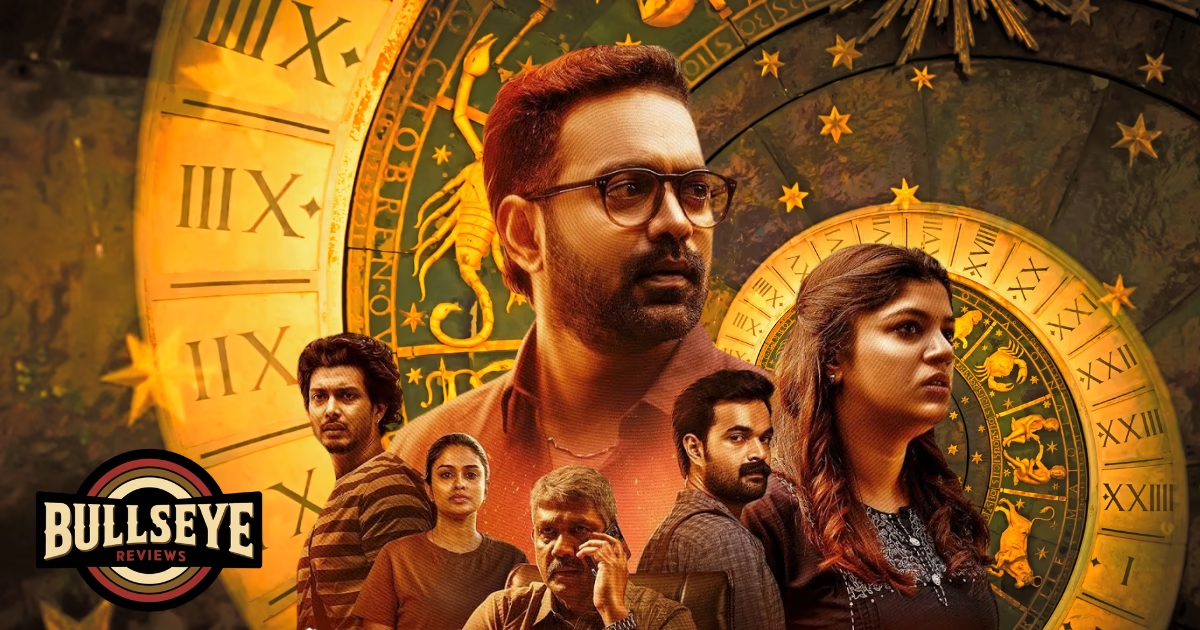Jeethu Joseph’s Mirage sets up a mystery packed with suspense, deception, and emotional tension. Asif Ali and Aparna Balamurali lead the story with conviction, but the film relies too heavily on forced twists and uneven writing. While it has flashes of intrigue, the lack of coherence keeps it from joining the director’s stronger works.
The Plot and Setup
Mirage opens with Aswin, an independent journalist determined to expose the truth without sensationalism. His life takes a turn when he learns of the death of an employee at a financial firm. The deceased, engaged to Abhirami, leaves behind unanswered questions and a mysterious hard disk containing incriminating data. Aswin decides to help Abhirami uncover what really happened, pulling both of them into a dangerous game of deceit.
The story expands into a battle of wits as multiple parties, including a cop and a criminal gang, begin their hunt for the hard disk. Loyalties are tested, secrets are revealed, and nothing is as straightforward as it first seems. The setup promises a tense, layered thriller, but the narrative choices weaken the impact.
What Works
Asif Ali shoulders the film with a convincing performance, giving Aswin a mix of curiosity, conviction, and vulnerability. Aparna Balamurali brings innocence and emotional weight to Abhirami, although her character is often kept in an overly naïve space that feels unconvincing at times. Technically, the film is polished, with Satheesh Kurup’s cinematography capturing the urgency of chase sequences and the tense atmosphere of confrontations. Jeethu Joseph also experiments with large-scale single-shot sequences, which, despite their gimmicky nature, show improved technical execution compared to his earlier works.

Where It Falls Short
The biggest drawback of Mirage is its overreliance on twists. While Joseph has mastered the art of surprising audiences in films like Drishyam and Memories, here the twists feel forced and artificial. Instead of being revelations that elevate the story, they often seem like they were planted for the sake of surprise. This creates a pattern where the audience expects one twist after another, but instead of awe, the reactions lean more towards fatigue.
The writing also weakens the impact of the characters. Several supporting roles start out promising but are underdeveloped, and their actions often contradict the logic established earlier. Over-explaining through dialogue further dulls the tension, with characters repeatedly stating the obvious instead of letting suspense build naturally.
Another issue is the heavy use of Tamil dialogue, which might alienate sections of the Malayalam family audience. While younger viewers may have no trouble following, this imbalance makes the film less accessible to a wider demographic.
Overall Impression
Mirage has its moments, with bursts of tension and glimpses of the narrative tricks Jeethu Joseph is often praised for. Strong performances from Asif Ali and Aparna Balamurali help ground the story, and the film’s technical polish gives it the appearance of a gripping thriller. Yet, it falls short of delivering the clarity and emotional depth needed to stand out in the director’s body of work. Too often, the twists feel engineered for surprise rather than emerging naturally, leaving viewers more unsettled than genuinely impressed.
Bullseye Rating:★★★ (3/5 stars)
Mirage is currently playing in theatres.

